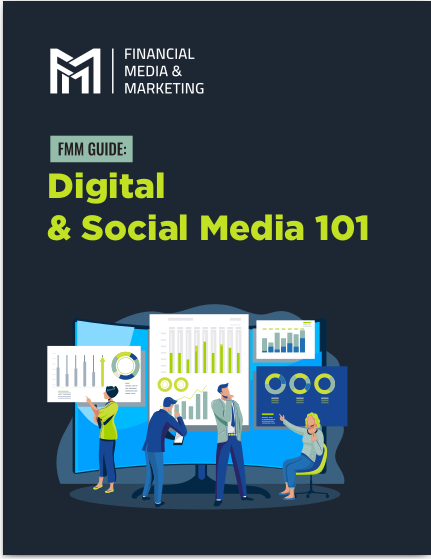Key Takeaways
-
Building trust with your clients requires consistent effort, authentic communication, and a focus on their individual needs.
-
Establishing a strong online and offline reputation ensures long-term success and credibility in your career as a financial advisor.
Why Reputation is the Cornerstone of Financial Advising
Your reputation as a financial advisor isn’t just about expertise—it’s about trust. Clients want to work with someone they feel confident will prioritize their interests. A positive reputation builds loyalty, attracts leads, and creates opportunities to expand your practice. To establish and maintain this trust, focus on authenticity and consistency across every interaction, both in person and online.
Laying the Groundwork: Understand Your Core Values
Before you start engaging with clients, take time to clarify your values and goals as a financial advisor. Your core values will serve as a guiding compass for how you interact with clients and leads. Ask yourself:
-
What drives me as a financial advisor?
-
How do I want my clients to perceive me?
-
What long-term impact do I want to have on my clients’ financial lives?
When you align your actions with your values, your clients will see the authenticity behind your efforts, strengthening their trust in you.
Online Presence: Be Where Your Clients Are
Build a Professional Website
Your website is often the first point of contact for potential clients. Make sure it reflects your professionalism and clearly communicates your services. Include:
-
A clean, easy-to-navigate design.
-
Clear descriptions of your services.
-
Testimonials or reviews from satisfied clients.
-
A blog or resource section to share financial insights and demonstrate expertise.
Engage on Social Media
Social media is a powerful tool to reach clients where they spend time online. Choose platforms that align with your target audience and commit to posting consistently. For example:
-
Share articles or updates on financial trends.
-
Post short videos explaining complex financial concepts.
-
Respond promptly to comments or direct messages to foster engagement.
Offline Interactions: Make Every Moment Count
Active Listening Builds Trust
When meeting clients or leads in person, prioritize listening over speaking. Let them share their goals, concerns, and financial situations without interruption. Active listening signals that you value their input and creates a more personal connection.
Follow Up Thoughtfully
After any meeting or interaction, follow up to show clients you care about their progress. Whether it’s an email summarizing next steps or a handwritten note thanking them for their time, these small gestures reinforce trust and reliability.
Consistency is Key: Aligning Your Online and Offline Efforts
Your online and offline interactions should complement one another. If your social media portrays you as approachable and knowledgeable, but your in-person demeanor is impersonal, your reputation will suffer. Ensure your tone, professionalism, and values are consistent across all channels.
Educate and Empower Your Clients
Be a Resource, Not Just a Service Provider
Financial advisors who position themselves as educators build stronger client relationships. Offer resources that empower clients to make informed decisions, such as:
-
Monthly newsletters with market updates.
-
Simple guides on managing debt or planning for retirement.
-
Free webinars or workshops on popular financial topics.
Explain Without Jargon
Financial topics can be intimidating, and clients may feel overwhelmed. Break down complex terms into simple, relatable language. When clients understand their options, they’ll feel more confident in your guidance.
Navigating Challenges with Transparency
Address Mistakes Openly
If a misunderstanding or mistake occurs, address it immediately. Acknowledging and resolving issues shows integrity and strengthens trust.
Be Honest About Limits
Clients value advisors who are transparent about what they can and cannot do. If you’re unsure about a particular area, collaborate with another expert or direct clients to additional resources.
Measure Success Beyond Numbers
Focus on Client Satisfaction
Client satisfaction isn’t just about portfolio growth—it’s about how clients feel about working with you. Regularly seek feedback to understand what’s working and where you can improve.
Build Long-Term Relationships
Success as a financial advisor isn’t measured solely by annual earnings. Long-term relationships lead to referrals, testimonials, and sustained growth in your practice.
Sustaining Your Reputation Over Time
Stay Educated
The financial world evolves quickly. Staying informed about industry trends, regulatory changes, and emerging strategies ensures you remain a trusted resource for your clients.
Monitor Your Online Presence
Set up alerts for mentions of your name or business online. Regularly review your social media profiles, reviews, and website to ensure everything reflects your current values and goals.
Celebrate Milestones
Share milestones like business anniversaries or professional achievements with your clients. It’s a way to connect on a personal level and remind them of your dedication.
Establishing a Legacy
A strong reputation isn’t built overnight. It’s the result of consistent effort, genuine interactions, and a commitment to excellence. By prioritizing trust, education, and transparency, you’ll not only gain loyal clients but also establish yourself as a respected professional in your field.
Build a Future Clients Can Believe In
Take the time to refine your approach and invest in both your online and offline presence. Remember: every interaction is an opportunity to reinforce trust and authenticity. By focusing on consistent efforts and genuine connections, you’ll create a reputation that stands the test of time.










